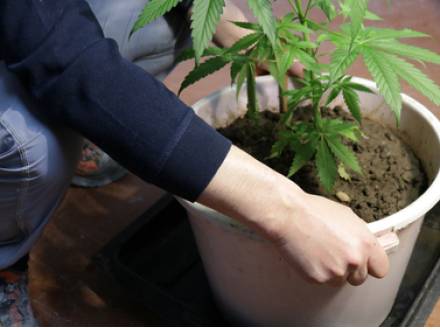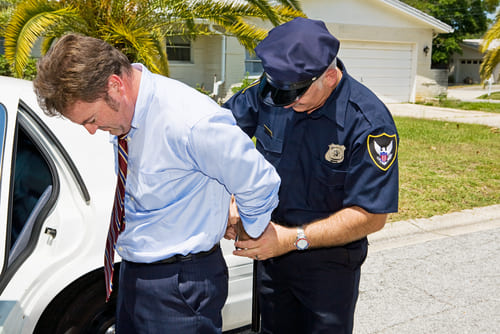Recent Blog Posts
Can I Get in Trouble for Growing Marijuana in Illinois?
 While marijuana is legal in Illinois for both recreational and medical purposes as of 2020, growing marijuana around your home may still lead to legal consequences. Depending on how much marijuana you are growing and whether or not you have a medical cannabis card, you may face serious penalties for growing marijuana in Illinois.
While marijuana is legal in Illinois for both recreational and medical purposes as of 2020, growing marijuana around your home may still lead to legal consequences. Depending on how much marijuana you are growing and whether or not you have a medical cannabis card, you may face serious penalties for growing marijuana in Illinois.
An experienced Illinois marijuana criminal offense lawyer can help you understand your rights if you are facing charges for growing marijuana around your home or apartment.
Growing Marijuana in Illinois – What is Legal?
In Illinois, people who have a medical cannabis card and are 21 years old or older can grow marijuana on their property. With a valid card, you can grow up to five marijuana plants that are five inches or taller within your home or apartment, provided you keep the plants in a locked room and out of sight of the public.
What Happens if I Violate Illinois Probation?
 Probation is a common penalty for people who have committed low-level crimes to remain under the supervision of the criminal justice system in Illinois without physically being in prison. For many, probation is preferable to time spent behind bars, but that does not mean you can do whatever you want while on probation. In fact, there are often very strict terms and conditions you must follow during probation.
Probation is a common penalty for people who have committed low-level crimes to remain under the supervision of the criminal justice system in Illinois without physically being in prison. For many, probation is preferable to time spent behind bars, but that does not mean you can do whatever you want while on probation. In fact, there are often very strict terms and conditions you must follow during probation.
Violating your probation can lead to serious legal consequences, and you will need a skilled Illinois probation violation defense lawyer if you are facing probation violation charges.
Common Probation Conditions
When you are placed on probation, you face a certain set of conditions that you must adhere to. These conditions are often tailored to the nature of the crime committed, and you may be required to follow special probation terms in addition to the following basic conditions of probation.
What Do I Do if Illinois Police Pull Me Over?
 For many individuals, being pulled over by a police officer for a traffic stop is a tense situation. It can be hard to know how to act and what to say when a police officer pulls you over, and this is only made worse if a routine traffic stop turns into an arrest for a serious violation. If you are pulled over by Illinois police, it is important to understand your legal rights. An experienced Illinois traffic violations defense attorney can further answer your questions.
For many individuals, being pulled over by a police officer for a traffic stop is a tense situation. It can be hard to know how to act and what to say when a police officer pulls you over, and this is only made worse if a routine traffic stop turns into an arrest for a serious violation. If you are pulled over by Illinois police, it is important to understand your legal rights. An experienced Illinois traffic violations defense attorney can further answer your questions.
How to Act During an Illinois Traffic Stop
When you are pulled over by law enforcement, you should use the following tips for how to act during a traffic stop. These tips can keep you safe and ensure that you do not accidentally offer up information that could potentially be used against you.
During an Illinois traffic stop, you should:
-
Pull over as soon as possible into a safe area; if there is no safe stopping area immediately available, slow down and put your blinker on to indicate to the law enforcement officer that you will be stopping.
When Do Illinois Drug Crimes Become Federal Crimes?
 Drug crimes in Illinois are serious, and the penalties for a drug crime are greatly increased if the crime becomes a federal matter. Even if state police make an arrest in Illinois for a drug crime, depending on the circumstances of the crime, it may still end up in federal courts.
Drug crimes in Illinois are serious, and the penalties for a drug crime are greatly increased if the crime becomes a federal matter. Even if state police make an arrest in Illinois for a drug crime, depending on the circumstances of the crime, it may still end up in federal courts.
If you are facing federal drug crime charges, it is important to speak with a skilled Illinois federal drug crimes defense attorney as soon as possible to learn about your options.
What to Know About Federal Drug Crimes
Several situations can result in an Illinois drug crime becoming a federal crime. In general, drug crimes become federal offenses when they violate federal law. Most notably, Illinois drug crimes can become federal drug crimes when they cross state lines, or when they directly violate the Controlled Substances Act.
How Can a Criminal Record Affect My Future?
 Criminal records make it difficult to navigate your future, especially if you are applying for employment, attempting to secure certain types of financing, or attending school. However, depending on the types of crimes on your criminal record, you may be able to expunge or seal your record, stopping these records from affecting your future.
Criminal records make it difficult to navigate your future, especially if you are applying for employment, attempting to secure certain types of financing, or attending school. However, depending on the types of crimes on your criminal record, you may be able to expunge or seal your record, stopping these records from affecting your future.
To learn if you are eligible for either expungement or sealing of your criminal record, you will need to contact an experienced Illinois expungement and sealing lawyer.
Your Future With a Criminal Record
It is no secret that criminal records can make it difficult to go about your daily life, especially in terms of securing employment, loans, or housing. Your criminal record may affect all areas of your life, including the following:
-
Employment
-
Voting rights, when incarcerated
What Are White-Collar Crimes in Illinois?
 White-collar crimes are nonviolent crimes typically committed to avoid losing money or to gain a personal or business advantage. They are taken seriously in Illinois and are often tied to federal investigations and charges.
White-collar crimes are nonviolent crimes typically committed to avoid losing money or to gain a personal or business advantage. They are taken seriously in Illinois and are often tied to federal investigations and charges.
Dealing with accusations of a white-collar crime in Illinois can seriously damage your personal and professional reputation, and the penalties associated with white-collar crimes will greatly impact your future. A skilled Illinois white-collar criminal defense lawyer is key to defending against white-collar crime accusations.
Common White-Collar Crimes in Illinois
The Illinois Criminal Code outlines a number of fraudulent and deceptive practices that can be considered white-collar crimes. This type of crime typically involves altering or tampering with financial information or attempting to conceal and deceive information for personal and business gains.
Child Pornography Possession Charges in Illinois
 The state of Illinois takes accusations related to child pornography very seriously, whether they involve the possession, distribution, or production of it. It is against the law to have minors in images or videos of a sexually explicit nature, and if any are found in your possession, law enforcement authorities will treat this very seriously. The consequences of a child pornography conviction are quite severe since they go far beyond the actual sentence handed down with a charge. People accused of involvement with child pornography often suffer a marred reputation and other life-damaging negative consequences for years after. If you are facing child pornography charges, speak with a skilled Naperville, IL criminal defense attorney who can review your case and build an aggressive defense to protect your rights.
The state of Illinois takes accusations related to child pornography very seriously, whether they involve the possession, distribution, or production of it. It is against the law to have minors in images or videos of a sexually explicit nature, and if any are found in your possession, law enforcement authorities will treat this very seriously. The consequences of a child pornography conviction are quite severe since they go far beyond the actual sentence handed down with a charge. People accused of involvement with child pornography often suffer a marred reputation and other life-damaging negative consequences for years after. If you are facing child pornography charges, speak with a skilled Naperville, IL criminal defense attorney who can review your case and build an aggressive defense to protect your rights.
What is Legally Considered Child Pornography?
Anytime a child is recorded, drawn, or otherwise depicted engaging in sexual conduct, it is considered child pornography according to Illinois law. This is true whether it exists in a video, photograph, audio file, animation, or any other kind of visual or digital media. Whether the child is nude, in a suggestive pose, or engaged in sexual contact, the law applies across all such scenarios.
Identity Theft Charges in Illinois
 The world is almost unrecognizable from how it was only two generations ago. The internet and smart technology have become important parts of daily life, with applications that address almost everything people want or need. As access to this technology has spread, so have things like information leaks and irresponsible use. You might even be incriminated for someone else’s carelessness online. Identity theft is a felony offense in Illinois, and a conviction has the potential for serious consequences that could affect you far into your future. Below, we will discuss some of the ways you could be charged. If you are facing identity theft charges, speak with an experienced Naperville, IL criminal defense lawyer to understand how best to protect yourself.
The world is almost unrecognizable from how it was only two generations ago. The internet and smart technology have become important parts of daily life, with applications that address almost everything people want or need. As access to this technology has spread, so have things like information leaks and irresponsible use. You might even be incriminated for someone else’s carelessness online. Identity theft is a felony offense in Illinois, and a conviction has the potential for serious consequences that could affect you far into your future. Below, we will discuss some of the ways you could be charged. If you are facing identity theft charges, speak with an experienced Naperville, IL criminal defense lawyer to understand how best to protect yourself.
Possession of Another’s Credit, Debit, or Identification Card
If you use someone else’s credit or debit card without their consent, whether the card was stolen or you used fraudulent means to obtain the card number, you could face charges. This is commonly charged as a Class 4 felony, but there could be Class 3 felony charges if you used at least three cards that did not belong to you within 12 months.
Parents Charged with Criminal Child Abuse in Illinois
 Parents can be charged with physical, sexual, or emotional abuse, depending on various circumstances. If your child is injured, allowed to suffer harm, or in a situation with significant risk of injury - whether physical, sexual, or emotional - you can be charged with child abuse in Illinois. Sometimes, these charges can be a matter of life and death for the child, but sometimes, false accusations can force an innocent parent to suffer unnecessarily. If you have reason to believe you might face child abuse charges, speak with an experienced Naperville, IL defense attorney who can review your case and help build a defense to protect your rights.
Parents can be charged with physical, sexual, or emotional abuse, depending on various circumstances. If your child is injured, allowed to suffer harm, or in a situation with significant risk of injury - whether physical, sexual, or emotional - you can be charged with child abuse in Illinois. Sometimes, these charges can be a matter of life and death for the child, but sometimes, false accusations can force an innocent parent to suffer unnecessarily. If you have reason to believe you might face child abuse charges, speak with an experienced Naperville, IL defense attorney who can review your case and help build a defense to protect your rights.
Child Abuse Charges
While parents might be accused of child abuse under a variety of circumstances, the charges they face will depend in large part on the severity and nature of the specific situation in question Common child abuse charges in Illinois include:
Can I Be Charged with Assault When Acting in Self-Defense?
 When someone attacks you, you are entitled to fight them off to avoid getting hurt. Unfortunately, the person who attacked you first might claim that you attacked them, and it can be difficult to prove that you were acting in self-defense. They might have had the intention of injuring you, but if you manage to protect yourself and stop them from hurting you and you do not have proof that they attacked you first, you might face charges of assault, battery, aggravated assault, or aggravated battery. This can be a very unfair and overwhelming situation to be in. If this happens to you, contact a qualified Naperville, IL criminal defense lawyer who can help the court see what really happened.
When someone attacks you, you are entitled to fight them off to avoid getting hurt. Unfortunately, the person who attacked you first might claim that you attacked them, and it can be difficult to prove that you were acting in self-defense. They might have had the intention of injuring you, but if you manage to protect yourself and stop them from hurting you and you do not have proof that they attacked you first, you might face charges of assault, battery, aggravated assault, or aggravated battery. This can be a very unfair and overwhelming situation to be in. If this happens to you, contact a qualified Naperville, IL criminal defense lawyer who can help the court see what really happened.
What Does Self-Defense Entail?
If someone attacked you but got hurt as you defended yourself against their attack, they might try to claim that you attacked them first and pretend they were the victim. While proving what happened might feel necessary for the sake of justice, truth, and your reputation, there are practical reasons to do so as well. If you are charged with assault or battery, you could face serious consequences that you do not deserve if you were defending yourself against the true attacker. Serving a jail sentence and having a permanent criminal record does not seem fair if the so-called victim of your attack was trying to hurt you first.














